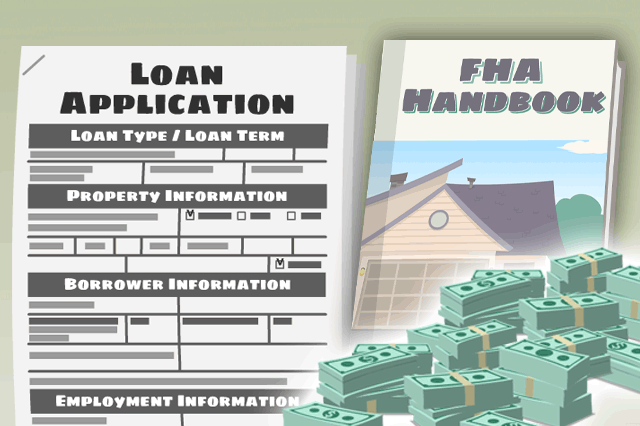FHA Home Loan Income Rules for Loan Approval

Those procedures apply regardless of whether you are buying existing construction or want to build a house on your own lot using an FHA construction loan.
But what does it mean to have qualifying income? How can you tell if the lender will approve your monthly earnings or not?
FHA Mortgage Loan Rules for Qualifying
All income is not the same, especially in the eyes of a lender. As mentioned above, the lender is charged with determining that your income is both stable and reliable, and will continue. This is what separates it from other types of earnings you are not allowed to have counted in your debt ratio, etc.
The basic equation is this: your monthly qualifying income is compared to your monthly financial obligations. The money you PAY each month cannot exceed a certain ratio compared to the money you EARN. It’s that simple. Except that only certain kinds of income may be counted.
There are many ways of determining the suitability of your income depending on the nature of the funds and how they are paid. A pay stub, tax statements, and even deposit records may all be required.
If you are paid hourly, work on commission, get hired as a contractor, or even if you are a seasonal worker, there are ways the lender can use to make sure your income is reliable.
Non-Job Income
There are certain kinds of income that are not job related but may still count toward your debt ratio. For example, the FHA loan rulebook, HUD 4000.1, states that alimony and child support may be considered income, but the borrower will have to provide documentation showing the history of these payments.
Also required? Any court orders or agreements that codify the payments somehow, and any evidence that the income is likely to continue. Lender standards and not just FHA home loan rules will apply in these situations, so it’s very good to ask the loan officer what standards may be required to be met beyond the FHA home loan rules.
What Does Not Qualify
Certain types of self-employment income either don’t count at all (selling items on eBay or via social media platforms is one) unless it is verifiable as likely to continue and is a year old or more. Self employment is not a barrier to loan approval in and of itself, but you will need to have records showing the consistency of your income over time.
What does NOT qualify as income? Cash earned from hobbies or one-time sales of goods or services, part-time jobs you haven’t held for more than a year, or education benefits such as the GI Bill, which do not continue indefinitely and expire within a fixed time.
------------------------------
RELATED VIDEOS:
You're Almost There When You Get Your Loan Approval
Learn About the Mortgage Insurance Premium (MIP)
Pre-approval Starts the Mortgage Process

Do you know what's on your credit report?
Learn what your score means.






